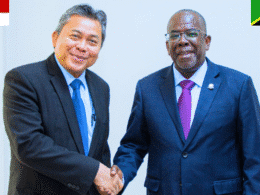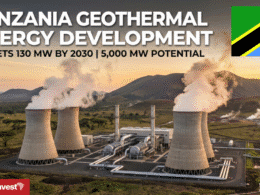According to recent reports, a Russian utilities company, Zarubezhstroy Corporation (ZARS), is currently planning to invest in a five year plan to construct what they are expecting to become the largest independent Tanzania hydropower plant to date.Similar to many other East African nations and as a direct result of its reliance on hydropower generation in combination with a series of severe droughts, Tanzania is currently facing a serious power shortage.
However, investors have predicted that the USD 700 million hydroelectric power (HEP) plant, which will be constructed at Rumakali in Iringa Region, will service between 20 and 25 percent of Tanzania’s hydropower needs upon completion.
Following the recent two-day Ninth African Investment Forum, Razmik Tarzerdyan, the chairman of the board of directors for ZARS, indicated to a Guardian Tanzania reporter that he is expecting the project to generate 222 Megawatts (MW) initially, all of which will be fed directly into the national grid.
Mr. Tarzerdyan went on to predict that there would be a substantial increase in the country’s overall power supply as the plant’s production capacity reaches its optimal levels, at which point it will be generating at least 464 MW.
“The Rumakali HEP initiative,” Mr. Tarzerdyan explained, “will make massive use of transfer technology to leverage the benefits of generation capacity built via the various other ventures ZARS is currently engaged in.”
In addition to its upcoming Tanzanian investment, ZARS also currently produces and supplies equipment to electricity ventures across the globe and operates power production plants in several other African countries such as Libya and Uganda.
The 750-MW Karuma Hydropower Project that is currently being constructed by ZARS in Uganda is expected to significantly enhance the country’s overall electricity supply upon completion.
In addition, Mr. Tarzerdyan explained that his company is also currently managing a number of projects in various energy sectors throughout the European Union, Asia, and the Americas as well as within Russia itself.
Furthermore, Mr. Tarzerdyan emphasized his company’s commitment to improving the overall welfare of communities in each countries in which ZARS operates through the implementation of development projects such as the construction of schools so as to best fall in line with the company’s corporate policy for social responsibility.
In addition to the investment plans of the Russian utilities company, Kalahari Energy Limited has also recently expressed an interest in exploring the Tanzania energy sector as a potential for investment, specifically with the idea of generating underground heating.
Moses Banda, the director of Kalahari Energy Limited, has indicated that his firm is currently in the process of studying the geothermal potential in and around Lake Tanganyika with additional plans to broaden the company’s energy portfolio through similar investments in the neighboring countries of Uganda and Malawi.










